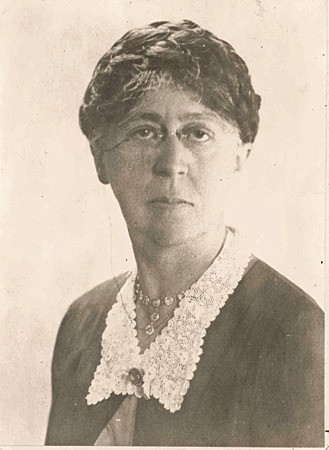Proto-cybernetician; cornerstone pragmatist. Mary Parker Follett [Wikipedia] ‘s Creative Experience (1924) is foundational for me. (online version)
Constructive Conflict by Mary Parker Follett
–Paper presented at Bureau of Personnel Administration conference, January 1925 (pdf)The psychiatrist tells his patient that he cannot help him unless he is honest in
wanting his conflict to end. The “uncovering” which every book on psychology has
rubbed into us from some years now as a process of the utmost importance for solving the
conflicts, which the individual has within himself, is equally important for the relations
between groups, classes, races, and nations. In business, the employer, in dealing either
with his associates or his employees, has to get underneath all the camouflage, has to find
the real demand as against the demand put forward, distinguish declared motive from real
motive, alleged cause from real cause, and to remember that sometimes the underlying
motive is deliberately concealed and that sometimes it exists unconsciously.
The first rule, then, for obtaining integration is to put your cards on the table, face
the real issue, uncover the conflict, bring the whole thing into the open….….This method of breaking up wholes is the way you deal with business
problems; it is the method, which precedes business decisions….….This is the most important word, not only for business relations, but for all
human relations: not to adapt ourselves to a situation—we are all, or rather each, of too
little importance to the world for that; but to take account of that reciprocal adjustment,
that interactive behavior between the situation and ourselves.
Mary Parker Follett saw into the situation of the relations between manager and employee–what was at the time termed industrial relations–before there was much of any accurate conceptual psychological language to help her. She works both forward and backward from her observation of the transactional interpersonal system to discover propositions which anticipate systems-theoretical views.
Current-day management leaders such as Peter Drucker and Rosabeth Moss Kanter have cited Mary Parker Follett as guru and prophet given her foreknowledge of systems theory, action research and leadership. She viewed business as a social institution and work itself as a community service, concepts particularly relevant in the context of understanding social entrepreneurship. Referencing two of her works, “The Individual in Society” and “Business in Society”, this paper introduces Follett, defines social entrepreneurship and presents her ideas as timely insights on the meaning of work, ethics and the role of business in society.
Circular response: Response is always to a relation. I respond, not only to you, but to the relation between you and me. My behaviour helps create the situation to which I am responding. That implies (what we have daily to take into account) that my behaviour is helping to develop the situation to which I am responding the developing situation makes it impossible to develop a map of the future.
(1) Social experience is the basis of state structure.
(2) Sovereignty is relative to the capacity to rule oneself, to rule a group or a state.
(3) State structure is the expression of elements of identity in purpose.
(4) The will of a group is not atomic but is the common expression of individual wills.
(5) Rich experience can only come through actual experiences in group life. There must be experience in a variety of groups. Because of the multiplicity of human nature no one group can exhaust the capacity of the modern citizen.
(6) Individual and group are not antitheses.
(7) The individual is the ultimate unit which is more diversified than any group can be.
(8) There is no necessary contradiction between the citizen and the state.
(9) Freedom and determinism are not opposites.
(10) Self and others are not opposites.

